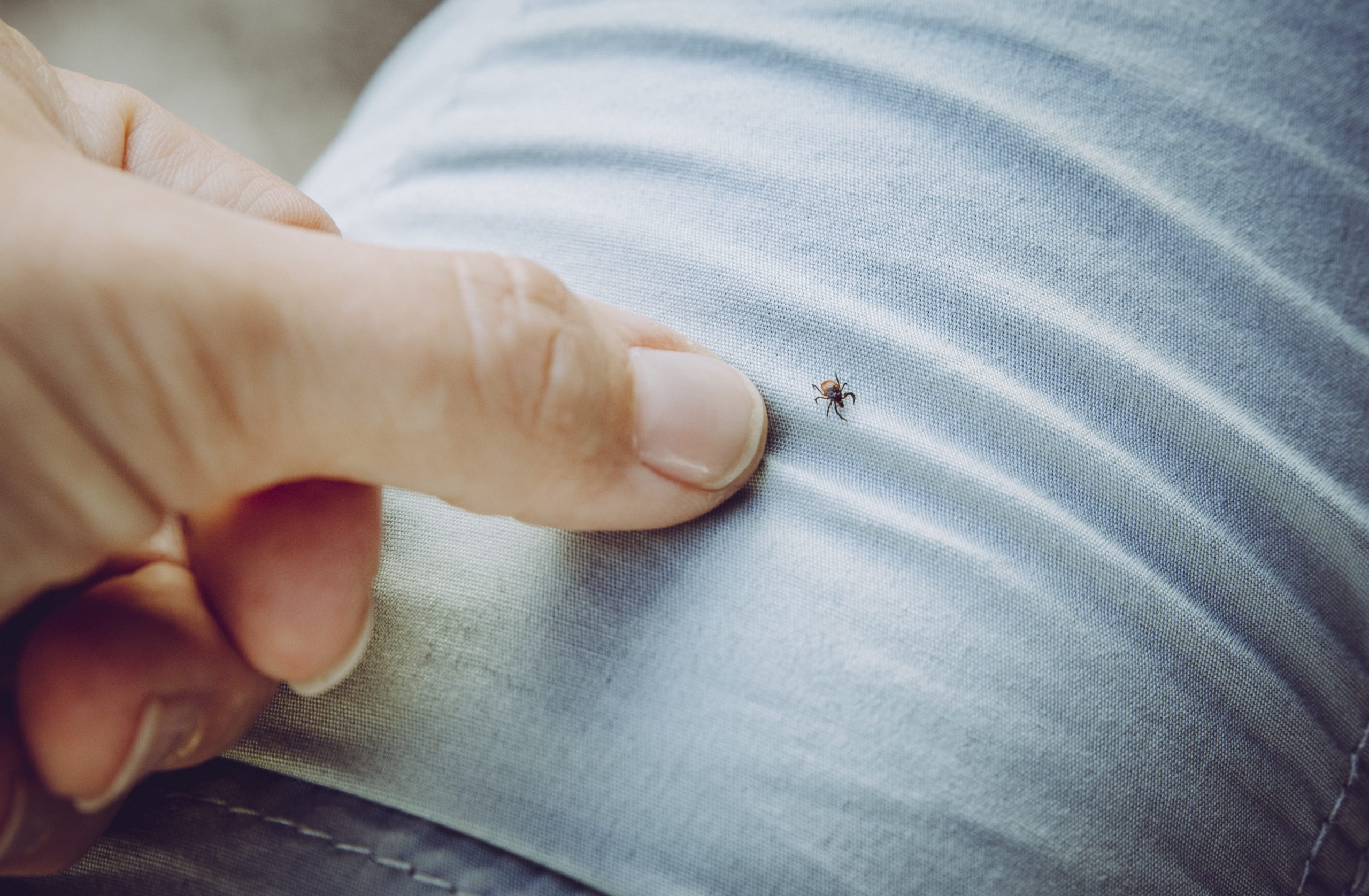Get Easy Health Digest™ in your inbox and don’t miss a thing when you subscribe today. Plus, get the free bonus report, Mother Nature’s Tips, Tricks and Remedies for Cholesterol, Blood Pressure & Blood Sugar as my way of saying welcome to the community!
Fever, fatigue, headache: Is it a tick bite or COVID-19?

We all know that ticks can carry disease. Yet, for the majority of us, when we worry about the need to check for the little bloodsuckers after a day outdoors or a camping trip, the disease at the top of our mind is usually Lyme.
But while there’s no doubt that Lyme disease is a serious condition with long-term implications for your health, there’s another disease circulating among one kind of tick that could not only hospitalize you but has even proven deadly — the Heartland virus.
If you haven’t heard of this tick-borne illness before, here are the basics…
The Heartland virus and the ticks that transmit it
The Heartland virus is spread by Lone star ticks, which are spread across the southeastern and eastern United States. These ticks are incredibly aggressive, and the adult female can be recognized by a white dot or “lone star” on her back.
When asked about these ticks, Holly Tuten, a vector ecologist with the Illinois Natural History Survey had this to say, “Lone Star ticks are very aggressive ambush predators and many people don’t realize this. I’ve seen Lone Star ticks run across a forest floor to me.”
The Heartland virus has already been identified in residents of 11 states including Arkansas, Georgia, Illinois, Indiana, Iowa, Kansas, Kentucky, Missouri, North Carolina, Oklahoma and Tennessee. Fortunately, most who’ve been bitten have recovered, but there have been a few deaths.
And the CDC says that most people who have come down with the disease have been infected during the months between May and September — which makes sense when you consider that this is also the time when most of us enjoy a higher amount of outdoor time.
If an infected tick latches onto you, symptoms you can expect include:
- Fever
- Fatigue
- Decreased appetite
- Headache
- Nausea
- Diarrhea
- Muscle or joint pain
- Severe bruising
But here’s where things get complicated.
Those are the same symptoms that come with other tick-borne illnesses as well as a number of other diseases, making misdiagnosis likely.
COVID-19 could complicate proper diagnosis
That’s because according to Tuten, “Heartland virus won’t show up on a standard diagnostic panel for tick-borne bacterial diseases. And with COVID-19 on the collective mind, a tick-borne viral infection could be overlooked, especially in cases where a tick bite was missed.”

Peak Golden Oil™
The powerful immune-modulating properties of Peak Golden Oil™ support a healthy immune system and your body’s ability to self-heal.
This means that if you begin to notice any of the symptoms of the Heartland virus after spending time in the great outdoors, you should be prepared to ask for testing for the disease since your doctor could make the assumption that coronavirus is behind your symptoms, without thinking outside the box.
Avoiding tick danger
Of course, the most important thing you can do is to take steps to avoid those blood-sucking ticks in the first place. These steps include:
- Avoid areas known to be infested with ticks, such as high grass and brushy or woody areas.
- Wear light-colored clothing that fully covers all areas of your skin and tuck your pants into high socks and boots so that ticks can’t latch on.
- Use natural tick repellents made with vodka, witch hazel, water and a blend of essential oils (lemon eucalyptus, rose geranium and citronella).
- Check for ticks frequently to remove them as soon as possible and avoid them passing on a disease.
Remember, if you’re outside this summer, so are the ticks. Whether it’s Lyme disease or the spreading Heartland virus, you have to be aware and protect your health now.
Sources:
- Urgent: The newest deadly tick danger — Easy Health Options
- Diseases Transmitted by Ticks — CDC
- Heartland virus disease (Heartland) Statistics and Maps — CDC
- Heartland virus disease (Heartland) Symptoms and Treatment — CDC
- Deadly Heartland Virus Is Much More Common Than Scientists Thought — NPR
- Regions where ticks live — CDC
- Lone Star ticks in Illinois can carry, transmit Heartland virus — EurekAlert!












